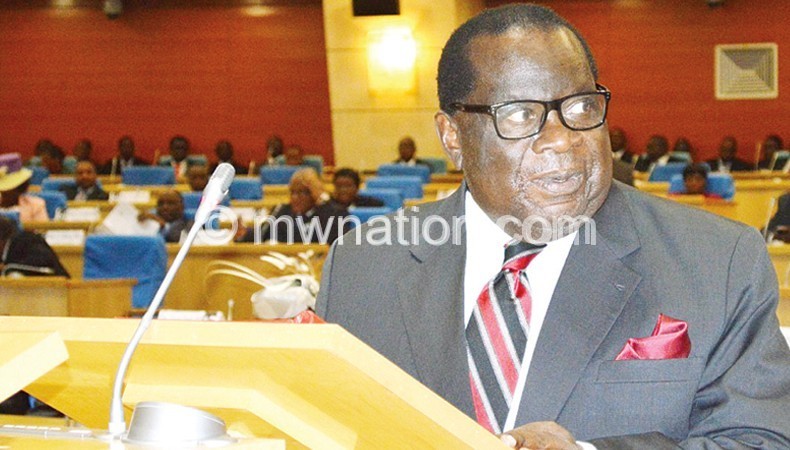Goodall’s honesty, diplomacy and budget
In making the assumptions for the 2015/16 National Budget delivered in Parliament on Friday, Minister of Finance, Economic Planning and Development Goodall Gondwe fell short of declaring that government is broke.
Ever since I knew good ole’ Goodall in 2004 when he joined the local political scene as Minister of Finance, I have always admired his honesty. To many a journalist, especially in a country where secrecy by public officers is the order of the day, Goodall would confirm critical issues, honestly which his colleagues would otherwise refuse to.
Behold, the man is a diplomat too. When wholly State-owned Malawi Savings Bank (MSB), currently up for sale, was riddled with bad debts, the man, through the Secretary to the Treasury, asked the Reserve Bank of Malawi (RBM) to issue promissory notes which simply put assures the lender that a payment would be made, but at a later date, over an agreed period. In that regard, K6 billion worth of promissory notes were issued to relieve MSB the burden, so to speak.

Goodall boldly stated there will be no budget support in the budget. Donors, who had been contributing about 40 percent to the national budget and 80 percent on the development budget, withdrew their assistance in October 2013 in protest over the plunder of funds at Capital Hill.
Introduction of a 10 percent tax on the Internet and short messaging service (SMS) is one of the new revenue avenues Goodall and his team have proposed. However, with SMSs almost becoming ‘obsolete’ following the dawn of WhatsApp and other messengers that attract rather negligible fees, I wonder how much it will add to the coffers.
Taxing Internet usage is another big minus for a country that already lags behind in terms of access to information and communications technology (ICT). It is estimated that Internet penetration in Malawi stands at about 30 percent, meaning that only three out of every 10 people use the Internet.
Besides, Malawi is/was already known for its abnormally high tariffs in the telecommunications sector and, through the new tax, government wants to make other telecommunications services even more expensive.
Elsewhere within Africa, notably in Rwanda and Kenya, their government appreciates the contribution of Internet to development. They see it as a need or right not luxury as we deem it. To that end, Rwanda introduced a one tablet per pupil initiative where schoolchildren are given tablets (such as Samsung and others, not medical drugs) to explore the world, undertake research when we would rather give each other goats and cows.
Some analysts have argued that improved Internet penetration and access albeit at affordable/reasonable rates has the potential to add three percent to economic growth or gross domestic product (GDP).
Budgets are financial plans that outline how resources will be mobilised and spent. Goodall and his team have just done that, presenting the proposals. However, the key lies in the implementation.
If I were assigned to coin a theme for the 2015/16 National Budget delivered in Parliament last Friday, it would be the familiar Facing Our Realities, Living Within Our Means.



